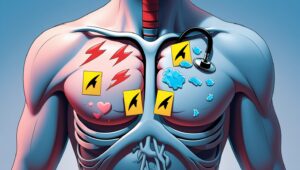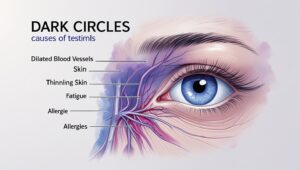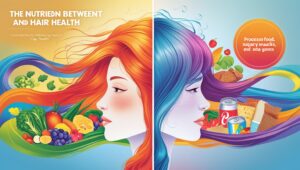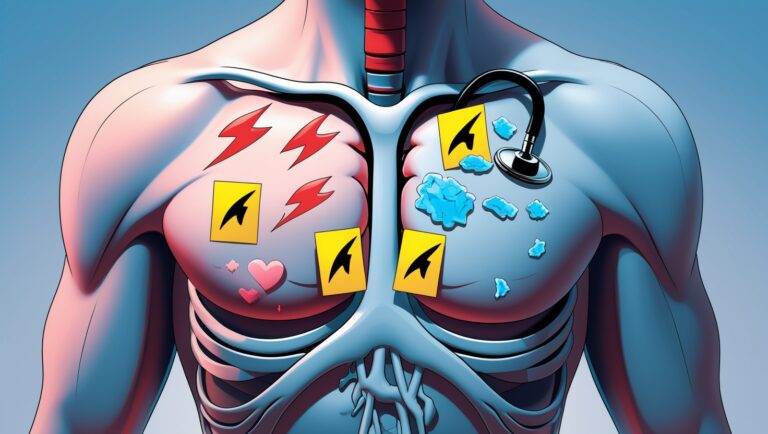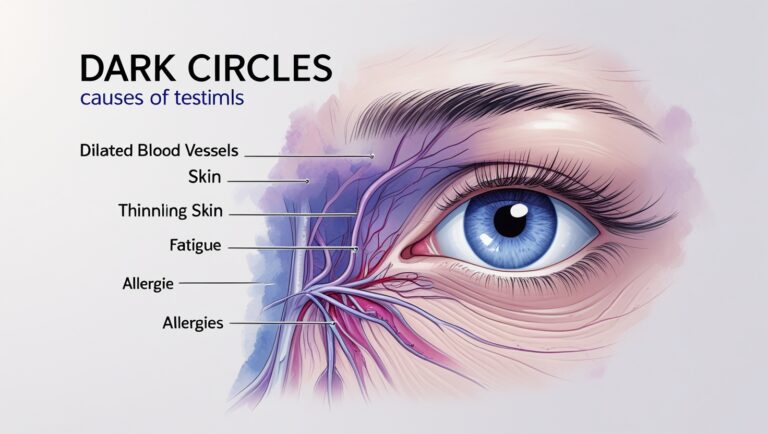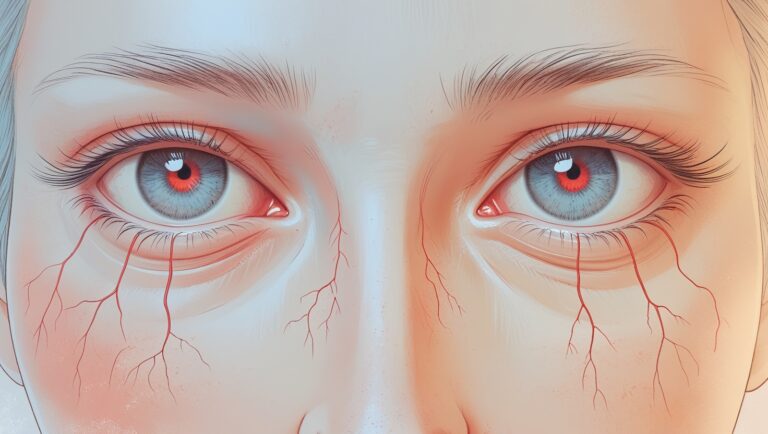Sudden chest pain can be a frightening experience. Whether it’s a sharp stab, a dull ache, or a squeezing pressure in your chest, your mind may instantly jump to the worst-case scenario — a heart attack. While chest pain should never be ignored, not all causes are life-threatening.
In this article, we’ll break down the most common causes of sudden chest pain, how to recognize when it’s serious, and what to do when it strikes. Our goal is to help you understand the potential reasons behind this symptom and when it’s time to seek immediate medical care.
Why Sudden Chest Pain Happens
Chest pain can stem from multiple systems in the body, including the heart, lungs, digestive tract, muscles, and even the mind. Sometimes the pain is harmless, while other times it could signal a medical emergency.
Key Body Systems Involved:
-
Cardiovascular system (heart and blood vessels)
-
Respiratory system (lungs and airways)
-
Gastrointestinal system (esophagus, stomach)
-
Musculoskeletal system (muscles, ribs, cartilage)
-
Nervous system (anxiety, panic)
Understanding which system is causing the pain helps narrow down the condition and guide the appropriate treatment.
Common Heart-Related Causes of Sudden Chest Pain
When people hear “chest pain,” their first thought is usually a heart attack—and for good reason. Heart-related chest pain (also called cardiac chest pain) can be sudden and severe.
1. Heart Attack (Myocardial Infarction)
A heart attack occurs when blood flow to the heart is blocked, usually by a clot. This causes part of the heart muscle to die if not treated quickly.
Symptoms include:
-
Sudden pressure, tightness, or pain in the chest
-
Pain radiating to the arm, neck, jaw, or back
-
Shortness of breath
-
Cold sweat
-
Nausea or lightheadedness
Urgency: Seek emergency medical help immediately. Time is critical.
2. Angina
Angina is chest pain caused by reduced blood flow to the heart muscle. It’s not a heart attack but can be a warning sign.
Triggers:
-
Physical exertion
-
Stress
-
Heavy meals
-
Cold temperatures
Signs to watch:
-
Pressure or squeezing in the chest
-
Pain that goes away with rest
Angina can be stable or unstable. Unstable angina (sudden or worsening) is an emergency.
3. Pericarditis
This is inflammation of the pericardium, the sac around the heart.
Symptoms:
-
Sharp chest pain that worsens with deep breaths
-
Pain improves when sitting up or leaning forward
-
Fever and fatigue
Usually caused by viral infections or autoimmune conditions.
Sudden Chest Pain Caused by Lung Problems
The lungs sit close to the heart, and lung-related issues often mimic cardiac pain.
4. Pulmonary Embolism (PE)
A pulmonary embolism happens when a blood clot blocks arteries in the lungs.
Symptoms:
-
Sudden, sharp chest pain
-
Shortness of breath
-
Rapid heartbeat
-
Coughing (sometimes with blood)
PE is a medical emergency and requires immediate attention.
5. Pneumothorax (Collapsed Lung)
This occurs when air leaks into the space between the lung and chest wall, causing the lung to collapse.
Common causes:
-
Injury or trauma
-
Lung disease
-
Spontaneous in healthy individuals (especially tall, thin males)
Signs include:
-
Sudden chest pain on one side
-
Difficulty breathing
-
Rapid heart rate
6. Pneumonia or Pleuritis
Infections like pneumonia or pleuritis (inflammation of the lung lining) can cause chest pain.
Symptoms:
-
Sharp pain with breathing or coughing
-
Fever, chills
-
Fatigue
Digestive Issues That Mimic Chest Pain
Chest pain doesn’t always come from the heart or lungs. The esophagus and stomach can cause sudden discomfort.
7. Acid Reflux or GERD
Gastroesophageal reflux disease (GERD) causes stomach acid to flow back into the esophagus.
Symptoms:
-
Burning sensation (heartburn)
-
Chest pain after eating
-
Sour taste in the mouth
-
Bloating or burping
Although not dangerous, GERD pain can feel like a heart attack.
8. Esophageal Spasm
Sudden contractions of the esophagus can mimic angina.
How it feels:
-
Tight, squeezing pain in the chest
-
Can radiate to arms or jaw
-
Triggered by swallowing or stress
9. Gallbladder Problems
Gallstones or gallbladder inflammation can cause referred chest pain.
Pain location:
-
Upper right abdomen
-
Spreads to chest or back
-
Often after eating fatty foods
Musculoskeletal Causes of Chest Pain
Muscles, bones, and nerves in the chest wall can also be the source of sudden discomfort.
10. Costochondritis
Inflammation of the cartilage where the ribs attach to the breastbone.
Symptoms:
-
Sharp, stabbing pain
-
Pain worsens with movement, coughing, or pressing the chest
-
Localized to one area
11. Muscle Strain
A pulled chest muscle from lifting or sudden movement can cause pain.
Clues:
-
Pain with specific movements
-
Tenderness to the touch
-
Improves with rest and over-the-counter pain relievers
Anxiety and Panic Attacks
Believe it or not, your mind can create real, physical chest pain.
12. Panic Attack
A panic attack can mimic heart attack symptoms, especially if you’ve never had one before.
Symptoms:
-
Sudden chest tightness or pain
-
Rapid heartbeat
-
Shortness of breath
-
Dizziness
-
Intense fear or sense of doom
Key difference: Panic attacks usually resolve within 20–30 minutes and aren’t triggered by exertion.
When to Worry: Signs You Need Emergency Care
Not all chest pain is life-threatening, but you should never ignore sudden or unexplained chest discomfort.
Seek immediate medical help if you experience:
-
Chest pain lasting more than a few minutes
-
Pressure, tightness, or a “heavy” feeling
-
Pain radiating to the jaw, arm, or back
-
Difficulty breathing or dizziness
-
Cold sweat, nausea, or vomiting
-
History of heart disease or high risk factors
It’s always better to be cautious and get checked.
Diagnosing the Cause of Chest Pain
When you arrive at a hospital or clinic with chest pain, doctors may perform:
Common Tests:
-
Electrocardiogram (ECG/EKG): Checks for heart problems
-
Chest X-ray: Examines lungs and bones
-
Blood tests: Detect heart damage (e.g., troponin)
-
CT scan or MRI: Looks for blood clots or other issues
-
Endoscopy: If digestive issues are suspected
-
Stress test: Evaluates heart function under exertion
Getting an accurate diagnosis is essential for safe treatment.
Preventing Chest Pain: Tips for a Healthier Life
While not all chest pain is avoidable, there are steps you can take to reduce your risk.
Heart-Healthy Habits:
-
Eat a balanced diet low in saturated fats and sodium
-
Exercise regularly (30 minutes/day)
-
Quit smoking
-
Limit alcohol intake
-
Manage stress with relaxation techniques
For Digestive Health:
-
Avoid trigger foods (spicy, fatty, acidic)
-
Eat smaller, frequent meals
-
Don’t lie down right after eating
For Anxiety:
-
Practice mindfulness or meditation
-
Consider cognitive behavioral therapy (CBT)
-
Limit caffeine and alcohol
Conclusion: Don’t Ignore Sudden Chest Pain
Sudden chest pain can be alarming — and with good reason. It can be a sign of something as serious as a heart attack or as minor as muscle strain. The key is not to self-diagnose.
If you’re experiencing chest pain that is new, severe, or unexplained, seek medical attention right away. Getting the right diagnosis can save your life or offer peace of mind.
